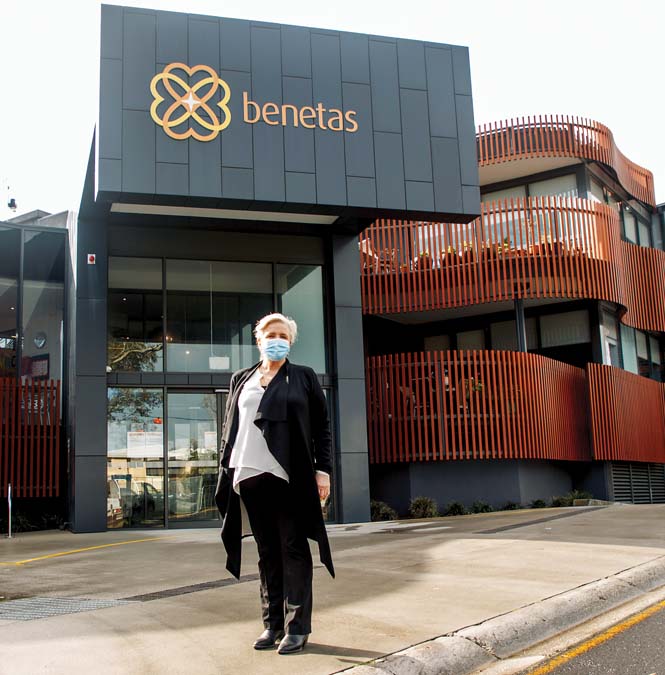A LEAD trainer in community services is creating a pilot program to help fill what she describes as a “huge need for aged care workers on the Mornington Peninsula”.
Jane-Ellen Mountford, who has worked in aged care “most of her life”, is hoping to generate interest in the profession at all levels.
“We want to raise awareness and generally create a better aged care workforce to support our elderly as they age with dignity and respect,” she said.
“This is a big drive for people who can be of all ages and from all walks of life.”
Ms Mountford, who lives on the peninsula and has a mother in aged care, said her initiative had government backing and was in collaboration with various aged care providers.
“My parents owned nursing homes in the 1970s and I grew up in one,” she said.
“There’s hardly a position in the industry that I have not held and now I put my efforts into quality training. I have a passionate interest in improving the lives of our elderly.”
Ms Mountford said she was often being told there were not enough staff and was hoping to rectify that problem: “I am aiming to come up with an initiative, while working with various stakeholders, to boost the aged care workforce,” she said.
“The idea is that I work with the aged care homes to make a commitment to employ staff who have completed an industry-specific, two-week preparation course I have created which includes a government funded entry into care skill set, which includes three subjects.
“These units alone do not give people enough skills or knowledge to confidently work or get a job, so I have added to the program and people will be offered volunteer work experience if they are unsure.
“I will be the lead educator on all these programs working with [training organisation] The Management Edge.”
Those applying would need to consent to a police check and have their COVID-19 and flu vaccinations. They would be expected to work at the one facility, rather than moving between aged care homes.
Training will be at Mornington or Frankston at this stage, depending on where applicants come from. For example, if 15 people in Rosebud apply for traineeships Ms Mountford will hire a room there.
The initial course is two weeks face-to-face and the full course is one day every three weeks with Zoom evening sessions of two hours on alternate weeks.
No costs will be charged at this stage as the traineeships are paid for by the federal government. Working hours will depend on the employer but will probably be part-time until trainees are offered fulltime positions.
“I believe that, with what we have put together, along with quality training from our industry experts, I can confidently place successful students into work,” Ms Mountford said. “They will then complete their full qualification while getting practical experience and guidance.
“This is the pilot program and it is an exciting opportunity using a system that allows for specific filtering of candidates according to their individual skills and qualifications.
“Most of the pieces of the puzzle are coming together and we are now looking for suitable candidates. We are also working with some of the job search agencies.”
‘A flawed system’
A CATALYST for Jane-Ellen Mountford’s efforts to increase the number of aged care workers came after the Royal Commission into Aged Care which made up to 150 recommendations aimed at improving a “flawed system”.
Many of these recommendations still await government policy responses, but some areas are sufficiently clear to enable quality-focused providers to initiate a response, Ms Mountford said.
“Chapter 12 in particular focuses on the aged care workforce and suggests initiatives for consideration. Some of the key take-outs, and our suggestions for organisations keen to be seen as responsive to the findings, include:
- Aged care training programs should be based on partnerships between aged care and education providers.
- Providers should consider partnering with a training provider that understands the needs of the sector and can assist the process of embedding people-care skills into the fabric of the business.
- A highly skilled, well rewarded and valued aged care workforce is vital to the success of future aged care.
First published in the Southern Peninsula News – 27 July 2021




